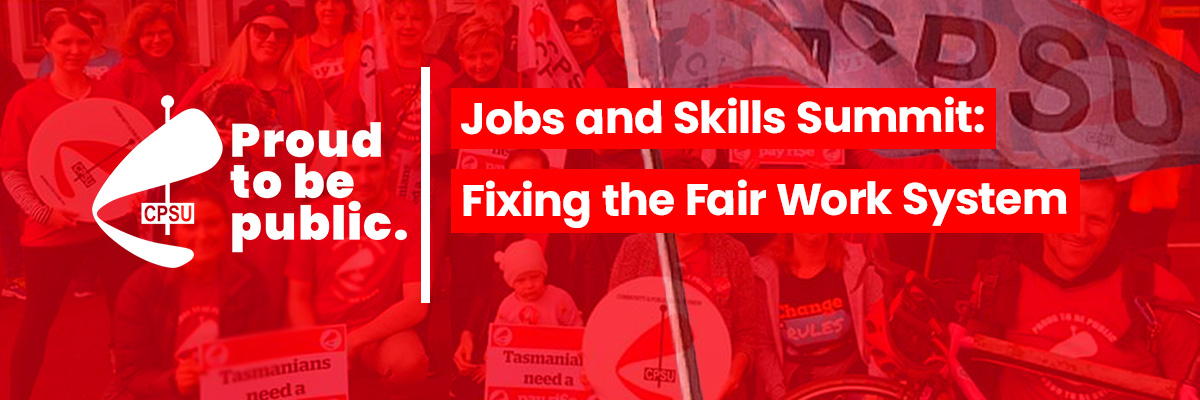
This week, on 1-2 September, the Albanese Commonwealth Government is getting together employers, unions, state governments, NGOs and academics to their National Jobs and Skills Summit. The focus of the summit is rethinking how we get the jobs and skills our economy needs and rebuilding an industrial relations system that is fair and responsive for all workers.
While Australia has emerged from lockdowns in better shape than many countries, our wages, stagnant for nearly a decade, are not keeping up with the sky rocketing cost of living, and insecure work is rife.
Working people have delivered record productivity gains to the Australian economy while wages have gone backwards. The experience of the past decade confirms that productivity growth cannot be relied on to deliver higher real wages, in an economic and industrial system deliberately structured to reduce workers’ bargaining power.
Since the 1970s real wages have been falling behind productivity growth, and with it, working families’ share of our nation’s wealth. A deliberate, joint effort to improve job security, lift wages, and fairly share the gains of productivity growth must be an essential component of any vision for achieving a more productive economy. That’s the argument unions are bringing to the table at the summit this week.
The Morrison government set us back further, boasting about making low wages a feature of its economic plan and adding greater flexibility for employers to terminate agreements, while opposing minimum wage rises and imposing wage caps across the public sector.
This week unions are arguing for new rules that would allow for broader deals that would give workers more of a collective voice. The independent umpire, Fair Work, should also have stronger powers to solve disputes and find solutions. The system will improve if the Fair Work Commission is strengthened, but also allowed to assist workplaces resolve matters such as harassment and pay equity.
“The way we see it working is that where it makes sense to have multi-employer bargaining, both the workers’ representatives and the employers sit down and negotiate across their sector. That’s the way it should work,” said ACTU Secretary Sally McManus.
Research shows that the issue of workers having the ability to negotiate across different worksites, particularly if they have the same job, is accepted as sensible and common-sense approach, and ensures a better bargaining position for workers. We have had this approach in the Tasmanian State Service for decades, but it is illegal under our federal industrial laws. For Government businesses like Sustainable Timber Tasmania, this disparity has seen wages drift behind those workers have been able to secure with greater collective bargaining power in the Tasmanian State Service Award.
Workers who have the same jobs across a sector should be able to come together to bargain for similar conditions as we do already in our state.
“If we do not give workers the abilities to be able to win pay rises, we’re not going to turn around this terrible situation we’re in. And we shouldn’t underestimate how bad it is,” said Ms. McManus.
“At the Jobs and Skills Summit we have an opportunity to address the big problems that have remained unaddressed for a decade to kick-start wage growth, deliver secure jobs for Australian workers and see living standards rise again.”








